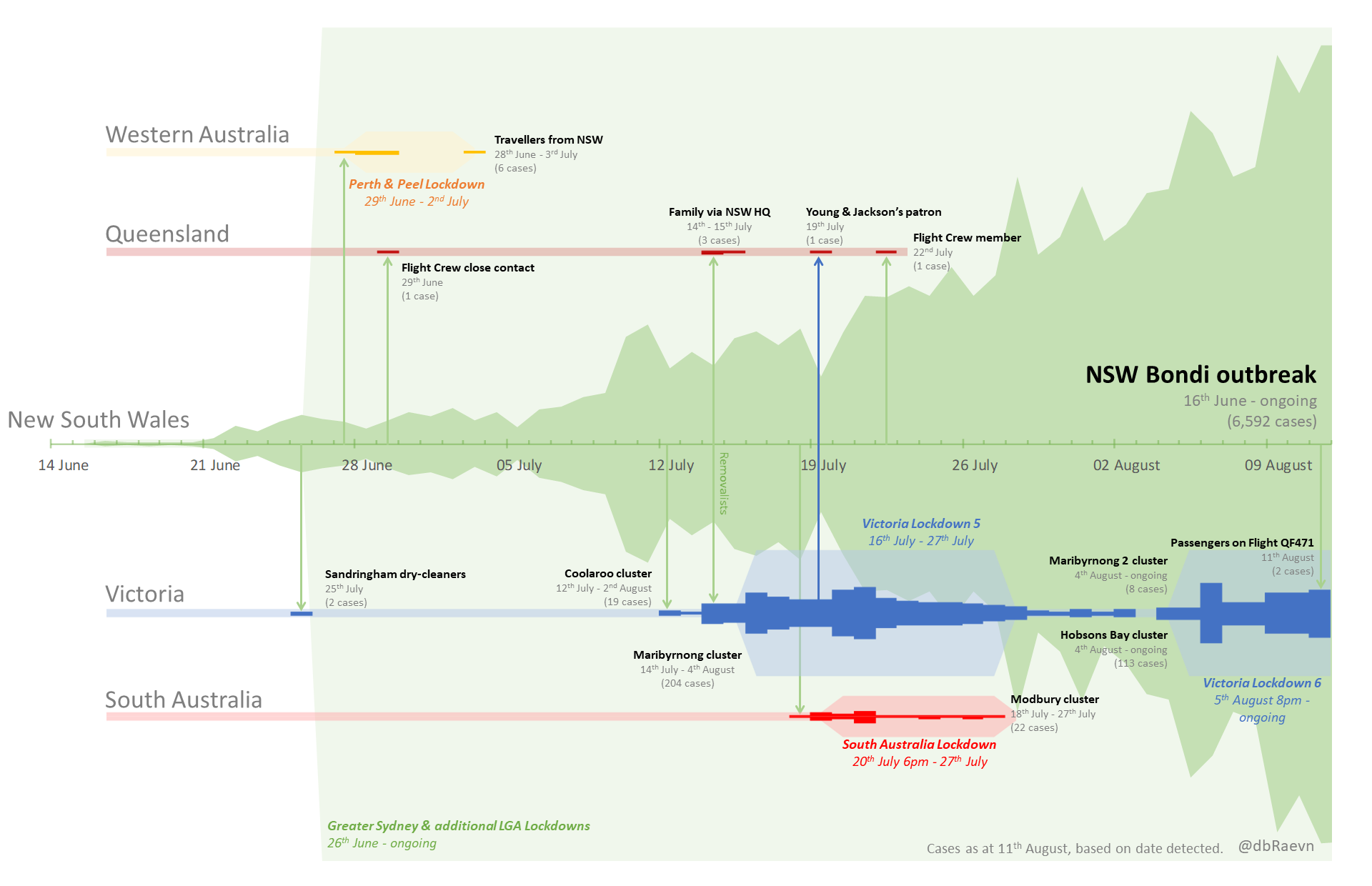We don’t even ask happiness, just a little less pain.
Upgrade Your Face Mask: 5 Ways To Filter Out More Particles NPR
Americans with PhDs are the most reluctant to get vaccinated against COVID, study finds.
(Classical reference in headline.)
Australia: New South Wales ‘in worst ever Covid situation’ BBC. Handy chart:

This is the sort of story that drives me crazy: Peru study finds Sinopharm COVID vaccine 50.4% effective against infections Reuters. First, this is pretty much what Sinopharm found in its clinical trails. Second, this is ALL INFECTIONS, not tracked by Pfizer and tracked but not reported by Moderna and Astra Zenaca. Third, buried is that the performance v. deaths is in line with some Western vaccines: “The vaccine, however, was 94% effective at preventing deaths after two doses.”
What’s the Proper Metaphor for the Covid Vaccine?
For The Atlantic, Katherine Wu writes about the difficulty of communicating how vaccines work and how they protect individuals and communities from disease: Vaccines Are Like Sunscreen… No, Wait, Airbags… No, Wait…
Unfortunately, communal benefit is harder to define, harder to quantify, and harder to describe than individual protection, because “it’s not the way Americans are used to thinking about things,” Neil Lewis, a behavioral scientist and communications expert at Cornell, told me. That’s in part because communal risk isn’t characteristic of the health perils people in wealthy countries are accustomed to facing: heart disease, stroke, diabetes, cancer. Maybe that’s part of why we gravitate toward individual-focused comparisons. Slipping into a pandemic-compatible, population-based frame of mind is a big shift. In the age of COVID-19, “there’s been a lot of focus on the individual,” Lewis told me. That’s pretty at odds “with how infection works.”
Sherlock Holmes is good company in bed
One Bad Apple Hacker Factor. Important even if you aren’t an Apple person, since Apple is about to kick off a new race to the bottom.
It describes in detailed but I think not too technical terms how the scheme works, what its failings are, and why Apple wants to do the scans on your phone instead of on its own servers (answer: they can’t access your files on their servers without a warrant, but somehow they *can* do it on your phone
How the role of HR is changing and why it matters to you
What do psychometric tests, workers comp and Sydney bin chickens have in common? Well they can be all in a day’s work for human resources professionals.
But their responsibilities and place in the company is rapidly changing in organisations today. Jacqui Curtis is chief operating officer of the Australian Tax Office and is also in charge of this change in HR for the Australian Public Service.
She explains why HR must have a seat at the boardroom table and how AI and data analytics can help the people management.
And the gorgeous illustration of the transformation happening in the APS (based on our interview with Jacqui Curtis) by Tatum Kenna.
More information: AHRI Convention,Transform 2021
Producer: Maria Tickle

